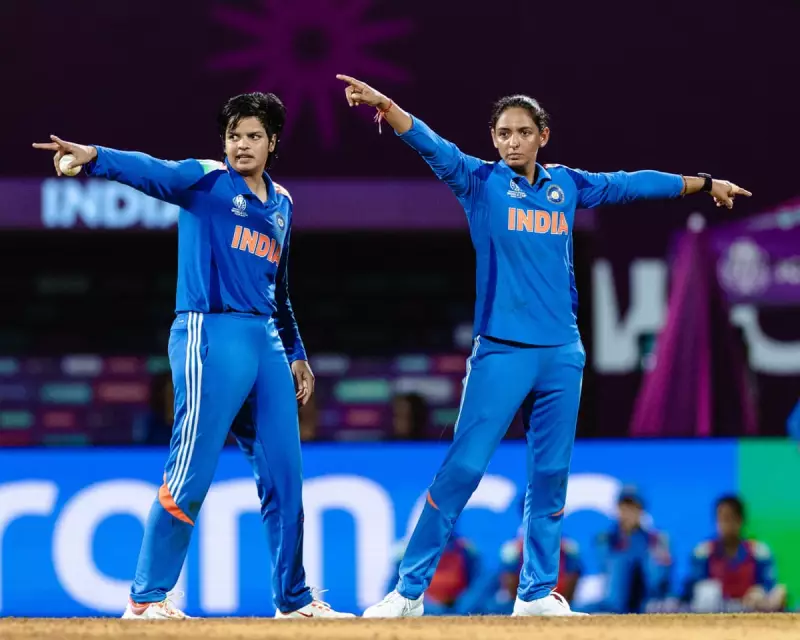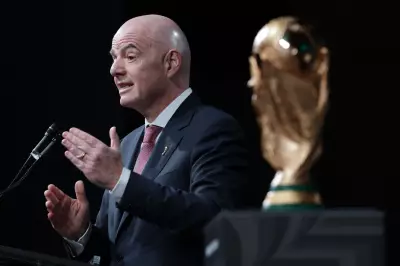
In a landmark moment for women's sport, India's national women's cricket team has secured their first-ever Women's Cricket World Cup victory, defeating South Africa in a thrilling final held in Navi Mumbai. This historic win represents not just sporting excellence but a significant step forward for gender equality in a country where cricket has long been considered a "gentleman's game."
Defying Social Stigma to Reach the Top
The journey to this World Cup triumph has been extraordinary, with players overcoming immense social barriers and limited resources. Shafali Verma, now a key player in the national team, began her cricket career by cutting her hair short and entering tournaments disguised as her brother after being rejected from academies that wouldn't accept girls.
Her father, Sanjeev Verma, recalled enrolling her as a boy when no training centre would take his daughter. "Luckily, nobody noticed," he said, as Verma eventually made her national team debut at just 15 years old.
The struggles extend throughout the team, with players juggling manual jobs between training sessions and defying deep-rooted social stigma in India's still largely patriarchal society.
A Turning Point for Women's Cricket
The victory comes at a critical juncture for women's cricket in India. It was only in 2017 that female cricketers received full-time professional contracts, while the Women's Premier League (WPL) was established as recently as 2023.
Varnika Choudhary, who plays for the Uttar Pradesh state under-23s women's team, described how her village of Beerakheri had previously resisted her playing cricket, taking two years to convince her parents. Yet during Sunday's final, the entire village gathered in the square to watch.
"Everyone in my village got so excited when they won," Choudhary said. "They were all sending me photos and reels and messages saying: 'This will be you winning for India one day.'"
Broader Impact on Gender Equality
The significance of this victory extends far beyond the cricket pitch. Hundreds of millions of viewers across India tuned in to watch the final, with many seeing it as a pivotal moment for women's rights in the country.
Sharda Ugra, one of India's foremost cricket writers, emphasised the powerful message sent by seeing women from rural small towns "running around, sweaty, shouting, screaming and uninhibited about what they looked like."
Team captain Harmanpreet Kaur acknowledged the broader implications after the match, stating that without this trophy, "the revolution, the change we want, won't come."
The team's achievement has been recognised at the highest levels, with Prime Minister Narendra Modi hosting the players at his residence this week.
Inspiring the Next Generation
At cricket academies across India, the impact is already being felt. At Delhi's Gargi college academy, 11-year-old Kiera Kareer said the win proved "that women's cricket is as good as men's."
Spreeha Maurya, 18, who was once the only girl at the same academy, noted the dramatic change in public perception. "I think winning this World Cup has solidified it in our mind that women can do everything and it's not a gentleman's game any more."
Her father, Rudal Maurya, witnessed the growing interest firsthand. When he first brought his daughter to state trials, only about 40 girls attended - this year, there were approximately 500.
"The mindset is changing," he said, his eyes welling up. "So many more parents will bring their girls for training now, and that can change the society."
Despite the progress, challenges remain. The Women's Premier League has only five teams, and resources for young female cricketers, particularly in rural areas, remain limited. Women's cricket in India still lacks its own governing body, falling instead under the men's organisation.
Nevertheless, this historic World Cup victory has ignited a movement that promises to transform not just women's cricket, but attitudes toward gender equality across India.





